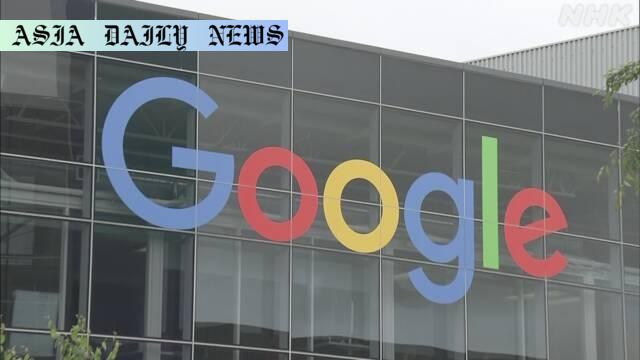Renaming: Tech giant Google updates Google Maps in the US to reflect new federal designations for Gulf of Mexico and Denali.
Google Maps has updated the Gulf of Mexico’s name to Gulf of America for US users.
This change follows a January 20 executive order by US President Donald Trump.
International users and Mexico retain the Gulf of Mexico designation on the app.
Denali has also been renamed Mount McKinley as part of these revisions.

Introduction
In a move that has sparked significant discussion across global audiences, tech giant Google has updated its Google Maps platform to reflect two noteworthy name changes prompted by the US government. The Gulf of Mexico has been renamed the Gulf of America within the United States, and Alaska’s tallest peak, Denali, is now referred to as Mount McKinley. These changes, initiated by an executive order signed by President Donald Trump on his first day in office, have drawn a mixed reaction from the public and international community.
Details on the Renaming of Gulf of Mexico
One of the most notable updates concerns the Gulf of Mexico, which will now appear as the Gulf of America for users accessing the app in the United States. This herculean change aligns with a statement issued by the US government just four days after the executive order was signed. Google Maps has implemented this update, citing its longstanding practice of reflecting official government sources in its content. According to Google, the name adjustment is consistent with the updates provided in the Geographic Names Information System, an authoritative repository for geographic nomenclature in the United States.
International and Regional Variations
Interestingly, this update does not apply universally. While users within the United States will see the Gulf of America reflected on their maps, users in Mexico will still view the region under its traditional name. Furthermore, individuals accessing Google Maps from other countries will observe both designations: Gulf of Mexico and Gulf of America. The varied presentation underscores the nuanced approach Google has taken to balance diplomatic sensitivities and compliance with US governmental standards.
The Renaming of Denali to Mount McKinley
The renaming initiative also extends to the majestic peak of Denali in Alaska. Widely recognized as the tallest mountain in North America, the peak now carries the name Mount McKinley in alignment with the directives issued by the government. Initially renamed Denali in recognition of its Native American heritage, the decision to revert to its former name has reignited debates surrounding cultural representation versus historical precedent. The renaming has drawn vocal support from some groups while sparking criticism among others who view the move as a step backward.
Impact on Google Maps and Beyond
Google’s decision to mirror these name changes within its digital service ecosystem highlights how tech companies often find themselves at the intersection of politics, technology, and cultural sensitivity. While Google asserts that it is merely adhering to governmental instructions, its users have taken to social media platforms such as X (formerly known as Twitter) to express their views. The discourse ranges from praise for upholding official standards to criticisms of the underlying motives behind the renaming initiatives.
Global Reactions and Public Sentiment
The updates to both geographic features have provoked reactions from diverse quarters. For many, the renaming of the Gulf of Mexico carries connotations of nationalistic pride, while others highlight potential geopolitical implications with neighboring Mexico, whose historical connections to the water body remain undeniable. Similarly, the renaming of Denali reflects deeper tensions between cultural identity and political decision-making.
Conclusion
In conclusion, the shifts within Google Maps following the US government’s directives serve as a reminder of the profound implications that naming conventions can carry. From stirring national identity to sparking international debate, the power of names remains a potent lens through which to examine the intersections of politics, technology, and society. As Google navigates this landscape, it remains to be seen how further developments might shape public discourse around these renaming efforts.



Commentary
The Political Weight of Naming Conventions
The decision to rename prominent geographic landmarks such as the Gulf of Mexico and Denali underscores the significant weight that names carry in political decision-making. Names are not merely labels; they represent identity, history, and often, the prevailing ideology of those in power. By renaming the Gulf of Mexico to Gulf of America, the United States government has made a bold statement, yet one that is inherently contentious within the geopolitical and cultural landscapes it touches.
Technology at the Crossroads of Politics
Google finds itself in an unenviable position, caught between political directives and a diverse, global user base. By incorporating these changes into its mapping platform, the company adheres to its policy of following official government sources. However, this poses complex questions about the role of tech companies in shaping public perception and disseminating political narratives. Should Google have an independent voice in such matters, or must it remain an impartial mirror of governmental standards?
Public Reaction: A Mixed Bag
The public’s reaction to these renaming efforts has been predictably divided. While some view it as a patriotic move that strengthens national identity, others decry it as an unnecessary politicization of cultural and historical landmarks. Social media platforms have illuminated this division, with users voicing everything from staunch support to vehement opposition. The overarching challenge lies in finding a balance that respects historical significance while acknowledging evolving political contexts.
Conclusion
Ultimately, the renaming of such key geographic features is not just about changing words on a map. It reflects the evolving dynamics of power, identity, and representation. As Google and other stakeholders navigate this terrain, the broader societal implications of these moves will continue to shape discussions about history, nationalism, and the politics of naming in the 21st century.